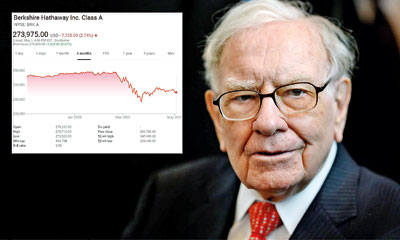Humanized Corona Humanized Brands?
View(s):Last week we heard that; Victoria Secret declared bankruptcy, Zara closed 1,200 stores, La Chapelle withdrew 4391 stores, Chanel is discontinued, so is Hermes, Patek Philip and Rolex discontinued production, in essence, the luxury industry has crumpled.
 |  | ||
 |  |
Very soon Nike will announce a layoff again, AirBnb says their last 12 years hard work was destroyed in 6 weeks, Starbucks closing down 400 stores, and not only people are dying but also the wealth they have created over the years’ under one name has disappeared. Oldest retail company JC Penny claims bankruptcy, Comcar the biggest truck company files for Bankruptcy, Biggest car rental company filed for bankruptcy, Biggest investor in the world; (Warren Buffet) lost US$ 50bn in the last two months, not only that; the biggest investment company in the world which manage USD 7 trillion (BlakcRock) is signaling disaster in the world economy, US treasury printing trillions of dollars trying to keep the economy alive an estimated number of 12, 000 to 15, 000 retail stores are going to close down.
Is there anything better we can do other than blaming it all on COVID-19?
 Before we blame it on COVID19, the virus has changed its strategy. The virus which took the world by storm is now taking a different approach, it’s humanizing its behaviour and trying to keep its host alive as the virus has realized that if it keeps killing humans, it will not have any survival; if an unkind virus gets humanized on its approach, we humans should be more empathetic than a virus in treating our own fellow humans in marketing brands and products without ripping them off by making propositions which are going way beyond the required level in assuring survival of the mankind. Of course it’s unfortunate to see how prison inmates trying to get themselves infected with COVID19 to get out of their prison cells. The approach proposed here is for ethical consumers who are trying to live an ethical life without being a threat to anyone.
Before we blame it on COVID19, the virus has changed its strategy. The virus which took the world by storm is now taking a different approach, it’s humanizing its behaviour and trying to keep its host alive as the virus has realized that if it keeps killing humans, it will not have any survival; if an unkind virus gets humanized on its approach, we humans should be more empathetic than a virus in treating our own fellow humans in marketing brands and products without ripping them off by making propositions which are going way beyond the required level in assuring survival of the mankind. Of course it’s unfortunate to see how prison inmates trying to get themselves infected with COVID19 to get out of their prison cells. The approach proposed here is for ethical consumers who are trying to live an ethical life without being a threat to anyone.
Marketers and brands need to learn from COVID-19 to humanize their approach if they can’t be humane in their approach in branding products and services.
Humanizing Branding and Marketing:
Between the choice of being ethical versus legal in the approach; which option your brand would opt for? Brands think being legal is smarter… within legal frameworks, looking for loopholes and creeping through them to enhance the ROI-Profits-Sales-Market share is no longer accepted.
We need to be more humane in our approach and moreover, brands need to be humanized for the long term survival of mankind and planet earth. Paying lip service to CSR and Sustainability while ripping the consumers off or preaching of serving a purpose while provoking people to spend for no proper purpose wouldn’t be appreciated in time to come.
Not only COVID humanized itself, it also humanizing the mankind for the long term survival and one of the main elements of it is to reduce flamboyant consumption to reduce the gap between haves and haven’ts. There will be a new list of Dos and Don’ts which are going to come into the picture of brand marketing in terms of humanizing CSR and Sustainability etc in brand building.
How do we humanize branding?
First and foremost take consumers as people… not as consumers… take them as your own family… friends…The era of marketers being proud of tapping into the black-box to increase sales and profits is over. We are in the journey of marking a new era in marketing; which is going way beyond the level of Societal Marketing – being environmentally friendly in making money by deceiving people with the tag of green marketing.
We are shifting from a mere green era to a new era where brands are going to be more humane in the way they look at people (Not consumers) and to an era where they need to see brands as friends and family.
Humanizing Brand Equity
Brand Equity (BE) is a loosely comprehended concept even among marketers. As Aaker and Keller explained in their seminal articles and framework on BE, for a brand to build strong equity: starting from awareness and driving all the way up to loyalty; it needs to create value.
Awareness and consideration can drive up to trial, but repeat purchase will take place if the brand can deliver what it’s supposed to deliver. So far in the delivery or performance aspect of branding, the focus has been on functionality only.
For example a RTD will be evaluated based on its taste. Carbonated soft drinks will be evaluated on their taste profile. Dairy brands will be evaluated based on taste and nutrition. In adding nutrition, the brand makers will keep the bear minimum to reduce cost as the ultimate objective is to maximize profits. Therefore, the time has come for brands to go beyond legal requirements and be truly human-friendly.
Not only that, but also when it comes to loyalty – the bond with brands; which used to be more of a natural bond that the person who would use the brand created with the brand based on the true value it created. But in today’s context we can see how brands run loyalty programs as a must-have. It really doesn’t mean much to the user/person. A credit card company offering loyalty benefits on volume of purchase or special discounts on a hotel stay at a point where the consumer is not in good health, wouldn’t mean much. Instead the benefit should be given on his/her hospital bill.
If a loyalty program can meet this criterion, it will really be an empathetic approach than a reactive approach to benchmark competition and to say; ‘we also have a loyalty scheme’. This is just one example but humanizing branding can go a long way and it can be a true friend to the user if the brand can be ‘true’ to them in their approach. This authentic and true approach can be the humane approach a brand can take in humanizing marketing and branding. Also another example is the way brands are priced. Being transparent in pricing to show cost, profits and taxes in separation would be the best way to humanize brands in pricing. It will be the ultimate CSR that any brand can deliver instead of deceiving people under the tag of CSR.
Deceiving Vs Discerning (Sensitive)
Brands need to move away from their strategies of Deceiving to Discerning. Being true and honest to consumers, is the way forward for brands. If brands need to stand tall among products and commodities, they need to be ethical. A brand which tries to deceive its users, is not an ethical brand. Deceiving is possible when brands only abide by legal requirements.
Legal requirements are a part of a system as legal system is made for a different reason which is not a part of the branding system which is created to drive people to use brands and then to fall in love with brands after getting to know them better in a mutually beneficial way. Therefore, two systems created for two different purposes will never overlap. As brand marketers what you need to understand is that, going way beyond legal requirements can make you more successful than an average brand, product or a commodity. It’s the best assurance you can give to your users.
It’s the best way to differentiate yourself from others. People have come to the realization that brands are not as sensitive and transparent as they portray to be and they are not as discerning as they seem to be. Brands which are moving away from us with the COVID pandemic show the true picture – how many brands are supporting the task of assuring the long term survival of the mankind. How many are truly needed for a happy and a content life?
This will challenge conventional brand marketers and brand custodians and it will create a fundamental shift in the way in which branding is looked at and how brand equity could be built…


